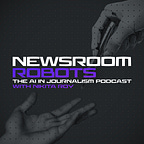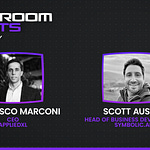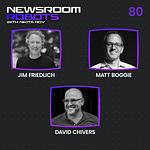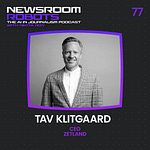Leaked documents, buried leads, and endless data – the stuff of journalistic dreams, right?
But for every groundbreaking story that gets published, countless others lie hidden in the depths of impenetrable reports and databases, waiting to be uncovered.
That's where the potential of custom GPTs comes into play in newsrooms. These personalized versions of ChatGPT can be tailored with specific instructions, knowledge, and capabilities to serve particular purposes or tasks. These AI-powered tools are helping journalists by automating routine tasks and surfacing insights that might otherwise go unnoticed. And while these tools are still in their early stages, they're already showing tremendous promise for newsrooms looking to stay ahead of the curve.
One journalist at the forefront of exploring the potential of custom GPTs is Jaemark Tordecilla, a veteran newsroom leader and Nieman Fellow at Harvard University. As the former editor-in-chief and, most recently, the senior assistant vice president of News and Public Affairs of GMA News, the Philippines' leading digital news organization, Jaemark has been experimenting with custom GPTs in his work and has seen firsthand the impact they can have on the newsroom.
"Custom GPTs are the easiest way to share prompts and document that prompt and get other people to use it," Jaemark explained during our conversation. "So if you have a set of instructions that work for you, this is the easiest way to share that instruction set in an app using custom GPTs."
As the editor-in-chief of GMA News Online for nearly a decade, Jaemark knows firsthand the challenges of investigative reporting in the Philippines.
Each year, the government releases hundreds of dense, jargon-filled audit reports for every agency, town, and province – a treasure trove of potential stories, but one that would take a team of reporters months to sift through.
During his Nieman fellowship, Jaemark began experimenting with custom GPTs to see if he could build a bot to analyze specific types of documents and surface key insights. His goal was to create a proof of concept to help newsrooms in the Philippines and beyond tackle ambitious investigative projects, even with limited resources.
The result was the COA Beta Assistant, a custom GPT that uses a massive trove of Philippine audit reports as its knowledge base. By feeding these documents into the system and experimenting with the GPT's instructions, Jaemark created an AI assistant that could quickly identify anomalies, surface potential leads, and even generate brief summaries highlighting the most newsworthy findings.
Jaemark found that the COA Beta Assistant could do in hours what would have taken a team of reporters weeks or even months to accomplish. It could spot irregularities like overpriced laptop purchases or questionable infrastructure projects at a scale that would be otherwise impossible for human journalists to achieve.
However, perhaps more valuable than the specific stories uncovered was the proof of concept the COA Beta Assistant represented. It showed that with the right tools and creativity, even small newsrooms with limited resources could take on ambitious investigative projects and hold the powerful to account.
Throughout the podcast episode, Jaemark shared fascinating insights into building and deploying custom GPTs, from the initial challenge of wrangling unstructured data to the ongoing work of iterating and testing to improve the GPT's outputs.
He also highlighted the potential for these tools to democratize access to powerful AI capabilities, enabling journalists to work with data and generate insights without extensive coding knowledge.
Of course, as with any new technology, there are also challenges and limitations to consider. Jaemark emphasized the importance of understanding the capabilities and biases of these models and of always keeping a human journalist in the loop to ensure accuracy and integrity.
"I think once you know the limitations, it makes journalists more open to it," he noted. “And the other thing is, once you're aware, you guard against it better."
Despite the challenges, the potential benefits of custom GPTs are too great to ignore. By automating routine tasks and empowering journalists to work more efficiently and effectively, these tools could help us uncover important stories that might otherwise go untold.
But he's also quick to note that these tools are not a replacement for human journalists – far from it. Instead, they're a powerful complement to the skills and expertise that reporters bring to the table, freeing them up to focus on the work that truly matters.
For newsrooms looking to explore the potential of custom GPTs in their work, Jaemark's experience offers a compelling case study. By starting small, experimenting constantly, and always keeping the human element at the center, journalists can leverage these tools to do their best work – even in the face of daunting challenges and limited resources.
So whether you're a data journalist looking to unlock hidden insights, an investigative reporter on the hunt for your next big scoop, or an editor searching for ways to streamline your team's workflow, this episode is a must-listen.
🎧 Tune in now on Apple, Spotify, Google Podcasts, and other major podcast platforms.










